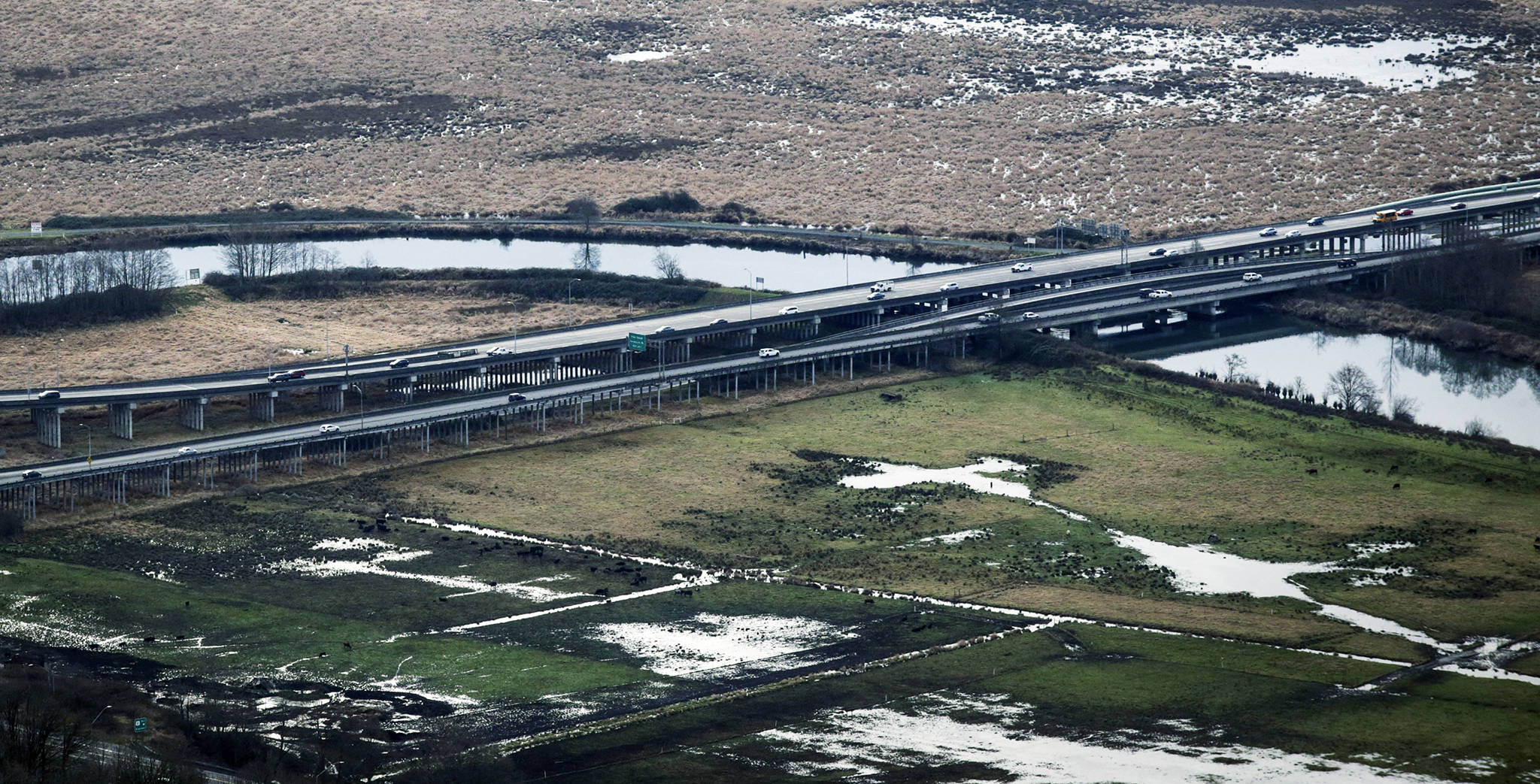OLYMPIA — A Lake Stevens lawmaker is plowing ahead with an ambitious plan for raising billions of dollars to build new bridges, widen old highways and open up fish passages.
Democratic Sen. Steve Hobbs filed legislation Thursday for a 10-year, $16.6 billion package of transportation improvements largely paid for with a 6-cent hike in the gas tax and new fees on carbon emissions and development.
Hobbs, who is chairman of the Senate Transportation Committee, estimates that much money is needed to carry out major projects such as rebuilding the U.S. 2 trestle in Snohomish County, and to pay for removal of state-owned culverts that are blocking fish passages as required by the U.S. Supreme Court.
His plan also would pay Washington’s share of a new I-5 bridge across the Columbia River, widen Highway 522 between Maltby and the Snohomish River, and fulfill items on wish lists of lawmakers across the state.
He touts it as the most comprehensive response to the transportation and environmental demands of a growing population.
“This bill shows there is another way to address our infrastructure needs and environmental concerns responsibly,” he said.
Hobbs started crafting the plan last fall and the Senate transportation panel held a public hearing in January. Dozens of people expressed support for a package, including representatives of the cities of Everett and Lake Stevens, and Snohomish County.
“I was surprised at the amount of support both from those at the hearing and members that signed onto the bills,” he said.
The committee will take up the legislation next week, he said.
One of its most controversial components is a provision to maintain a ban on imposing a low carbon fuel standard in the state. The prohibition was an element of the 2015 transportation package known as Connecting Washington. This year, Gov. Jay Inslee and many Democratic lawmakers are pushing legislation to develop a requirement for production of gasoline with a lower content of carbon.
Hobbs’ plan — which he calls Forward Washington — would raise roughly $10 billion from two sources — a fee of $15 per metric ton of carbon emissions starting July 1, 2020, and a 6-cent increase in the gas tax this July.
Voters in November rejected an initiative to impose a similar-sized fee. Hobbs has said he thought some of the opposition was due to concerns on how the fee would escalate and how the money would be used.
“This fee is locked in at $15 per metric ton, most of which is dedicated toward environmental improvements, including recommendations made by the governor’s Southern Resident Killer Whale Task Force,” he said in a statement. “Transportation is responsible for most of our state’s greenhouse gas emissions.”
In the plan, nearly $1 billion would come from a new statewide transportation impact fee imposed on construction of homes, commercial buildings and manufacturing sites.
Other pieces include increasing the electric vehicle fee by $200, boosting the sales tax levied on auto parts, bicycles and rental cars, and imposing a new 50-cent trip fee on for-hire vehicles. He’s also penciled in higher weight fees on vehicles and increasing the Washington State Ferries capital surcharge from 25 cents to 50 cents.
In the plan, $3.5 billion of carbon fee receipts are earmarked for removing state-owned culverts as required by a U.S. Supreme Court directive. The carbon fee is also used to convert existing ferries to run on electricity and curb pollution from stormwater run-off.
Receipts from the increase in gas tax and other fees are mostly steered toward roughly 80 small and large projects around the state and to bus, bike, freight and pedestrian programs.
There’s $1.49 billion to rebuild the westbound trestle of U.S. 2 and to redo the interchange of Highway 204 and 20th Street SE. His plan assumes the trestle will have four lanes of which two are general purpose and two are express toll lanes. A portion of money for the project would come from tolls.
He also has included money to widen a three-mile stretch of Highway 522 between Monroe and Maltby and construct a new grade-separated interchange at Paradise Lake Road. And there is money to widen a three-mile stretch of Highway 9 between 176th Street SE and Highway 96 and to use $470 million in toll receipts to have two toll lanes on I-405 between highways 522 and 527.
Jerry Cornfield: 360-352-8623; jcornfield@herald net.com. Twitter: @dospueblos.
Talk to us
> Give us your news tips.
> Send us a letter to the editor.
> More Herald contact information.

























